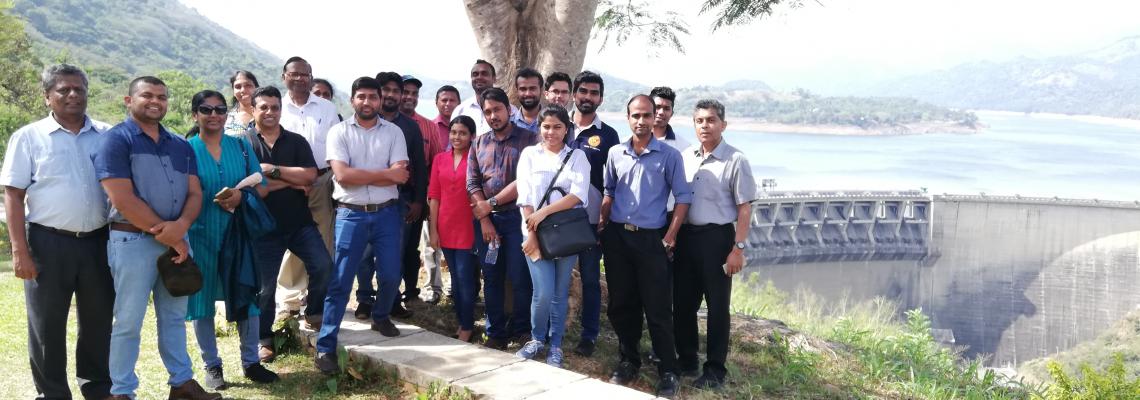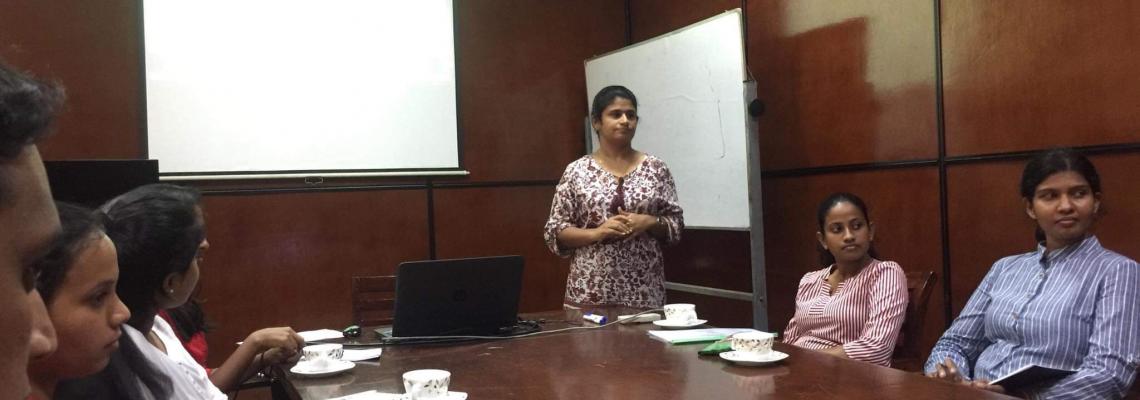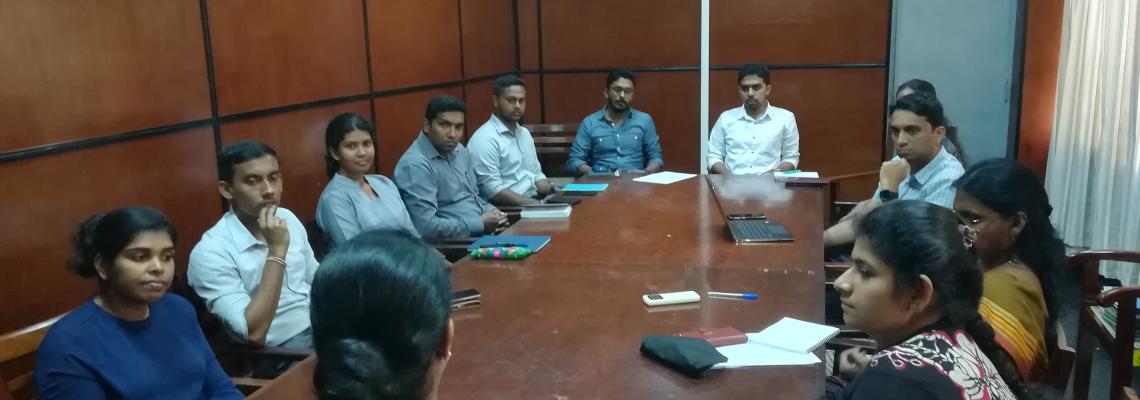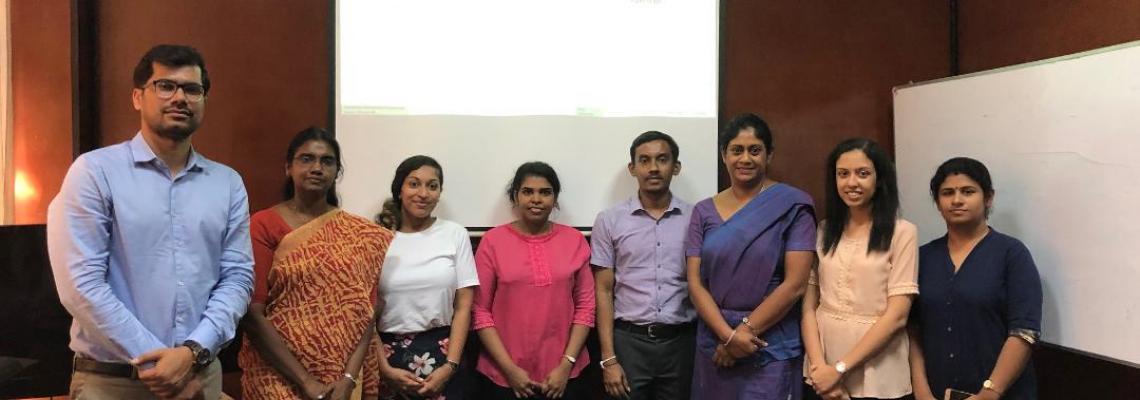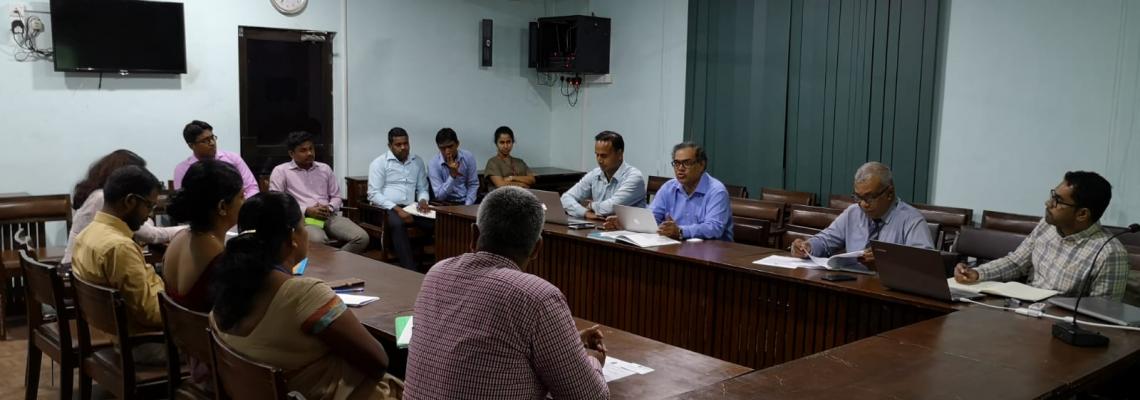Wind Induced Damages to Roofs and Mitigation: A Sri Lankan Case Study
Research Student: Ms Biyanka Ekanayake Research Supervisor: Dr. Udayangani Kulatunga
This research investigates the factors affecting the wind impact on roofs and the strategies to mitigate those impacts through a qualitative research approach. It further explores the current measures undertaken in this context and challenges in materialising the desired objectives. This is a 4 months project funded by the Senate Research Committee (SRC) short term grants of University of Moratuwa.
Improving resilience of coastal communities
Main contact: Dr Menaha Thayaparan
This is collaborative project that aims to carry out an assessment of physical and economic coastal vulnerability of South Asia. It will build an economic and social index and combined index in order to improve the resilience of coastal communities to the impact of natural disasters
Objectives are to:
• Develop a combined coastal vulnerability index
• Make recommendations for enhanced management of coastal vulnerability and disaster risks
• Contribute to increased resilience of coastal communities in the respective countries
This work will be the first study which will assess the physical; fiscal; infrastructural; and sociological impacts. Information will be gathered from satellite and drone imagery; farmers, agricultural workers, fishermen, local men and women and school children
Focussing on India, the Philippines, China and Sri Lanka
Partners:
• UK - Solent University (Lead), University College London, University of West of England
• India - University of Delhi, Jawaharlal Nehru University, Anand Agricultural University, Institute of Economic Growth, Indian Space Research Organisation, Indian Institution of Technology, Kharagpur
• Philippines - Da La Salle University, Local Government Academy, Makati, Manila, Albay Public Safety and Emergency Management Office
• China - Chinese Academy of Sciences,
• Sri Lanka - University of Moratuwa
Publication: Kantamaneni, K.; Sudha Rani, N.; Rice, L.; Sur, K.; Thayaparan, M.; Kulatunga, U.; Rege, R.; Yenneti, K.; Campos, L.C. A, (2019), Systematic Review of Coastal Vulnerability Assessment Studies along Andhra Pradesh, India: A Critical Evaluation of Data Gathering, Risk Levels and Mitigation Strategies. Water , 11(2) , 393.
Funded by Global Challenge Research Fund (for initial data collection)
Use of Big Data for Emergency Warning: The Case of Sri Lanka
Research Supervisor: Dr. Udayangani Kulatunga Research Student: Akhila Rathnasiri
Big Data provides the opportunity to gather more information in a lesser time. Hence, Big Data is identified as a great catalyst for disaster response and, for better understanding on the damage situation and decision-making. The intervention of Sri Lankan service providers for a successful evacuation during disasters and extraction of Big Data on the human behavioural patterns during disasters to identify the evacuation pathways and communities with high risk are still in a primary stage. Therefore, this project aims to enhance the use of Big Data for disaster resilience in Sri Lanka with reference to emergency warning. This is a 4 months project funded by the Senate Research Committee (SRC) short term grants of University of Moratuwa.
Publication:
Use of Social Media for Disaster Management (Undergraduate thesis)
Student: Ms Archchana Shandraseharan Research Supervisor: Dr. Udayangani Kulatunga
In Sri Lanka, though there are enough techniques used to identify the disasters, they are not sufficient for Early Warning. In addition to this, the available EW techniques also only capable to disseminate urgent alerts to the affected areas while this restriction made the process ineffective in disaster management. Due to this lack of effectiveness in EW systems, it makes catastrophic effects to the people and property. Though Kim et al. (2016) suggested the social media can be one of the best solutions which can enhance the effectiveness of EW system all over the world, it has not extensively explored with prior to the Sri Lankan context. This research is focusing on enhancing the EW stage of disaster management in Sri Lanka and improve the quality of assistance provided to people related to disaster management in terms of EW through social media.
Publication:

